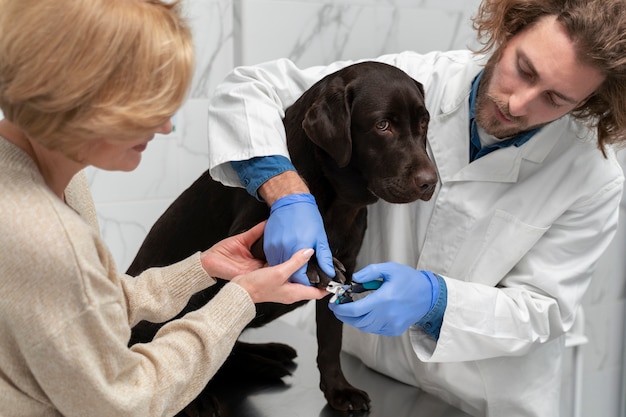Understanding Food Allergies in Dogs and Cats: Symptoms, Diagnosis, and Care

Understanding Food Allergies in Dogs and Cats: Symptoms, Diagnosis, and Care
Food allergies can significantly impact the health and well-being of our canine and feline companions. At Express Vets Buford, we understand the importance of identifying and managing food allergies in pets to ensure they live their happiest, healthiest lives.
Understanding Food Allergies in Dogs and Cats
Food allergies in pets occur when their immune system reacts negatively to certain ingredients in their diet. Common allergens include proteins such as beef, chicken, dairy, and grains like wheat or corn. Unlike food intolerances, which typically involve digestive issues, allergies trigger immune responses that can affect the skin, gastrointestinal tract, or even respiratory system.
Recognizing Symptoms
Symptoms of food allergies in dogs and cats may manifest differently but can include:
- Skin Issues: Itchy skin, excessive scratching, redness, or hot spots.
- Gastrointestinal Upset: Vomiting, diarrhea, or frequent bowel movements.
- Ear Infections: Recurrent ear infections or inflammation.
- Respiratory Issues: Coughing, sneezing, or wheezing (less common).
These symptoms can vary in severity and may develop over time as your pet continues to consume allergenic foods.
Diagnosing Food Allergies
Diagnosing food allergies requires a systematic approach, often involving:
- Elimination Diet: Your veterinarian may recommend a hypoallergenic diet to identify specific allergens by gradually reintroducing potential triggers.
- Food Trials: Controlled feeding trials to monitor your pet's response to different food ingredients.
- Allergy Testing: Blood tests or intradermal skin tests to identify allergens, though these methods are less common for food allergies.
Accurate diagnosis is crucial for developing an effective management plan.
Managing Food Allergies
Once identified, managing food allergies involves:
- Dietary Changes: Switching to a hypoallergenic or limited ingredient diet free from identified allergens.
- Medication: Symptomatic relief through medications helps to manage allergic reactions.
- Environmental Control: Minimizing exposure to potential allergens in your pet's environment.
Your Pet's Dietary Health Partner
At Express Vets Buford, we're dedicated to supporting you in providing optimal dietary care for your dog or cat. Whether you're navigating food allergies or seeking guidance on nutritional choices, our team is here to provide compassionate care and expert advice.
If you suspect your pet may have food allergies or if you're concerned about their dietary health, contact Express Vets Buford at (470) 326-5220 or visit us at 4108 Hamilton Mill Road, Suite 310,Buford, GA 30519 for personalized veterinary care. Together, we can develop a plan to manage your pet's allergies and improve their quality of life.



















